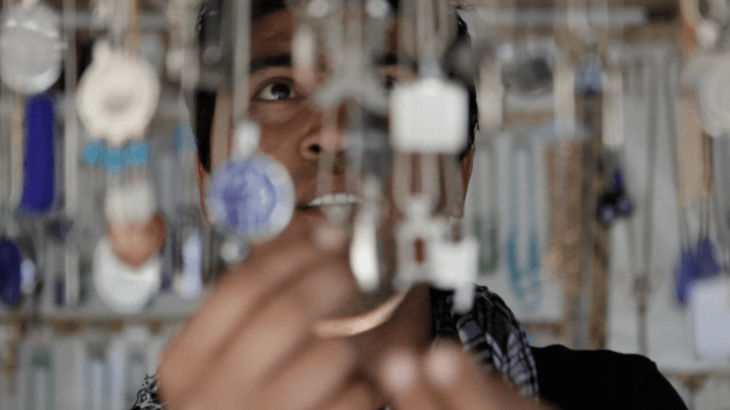
Stranded in Kabul
As foreign troops prepare to withdraw from Afghanistan, one young Afghan secretly devises his own escape.
Despite the billions of dollars being poured into Afghanistan to rebuild the country and boost its economy, more than 30,000 Afghans applied for political asylum worldwide last year.
Zekria is willing to pay $25,000 to an agent to make a visa application to a European country on his behalf.
Keep reading
list of 4 itemsPalestinian Prisoner’s Day: How many are still in Israeli detention?
‘Mama we’re dying’: Only able to hear her kids in Gaza in their final days
Europe pledges to boost aid to Sudan on unwelcome war anniversary
If this visa is not granted, he will be stranded in Kabul facing the likely option to escape through people smuggling networks. At only 27 years of age he works for an international agency and is the sole supporter of his family of 16.
Fearing what will happen when the foreign forces withdraw, he secretly plans his own escape from Afghanistan.
| Filmmaker’s view |
By Elissa Bogos
Thousands of Afghans are fleeing the country every year and many die en-route, seeking more security and opportunity in the West. The scheduled departure of international combat forces from Afghanistan in 2014 has left more and more Afghans uneasy about their future and Afghans now make up the largest refugee population worldwide at three million.
Now, with so many young and educated Afghans fleeing the country, Afghanistan faces a brain drain at a critical turning point.
Elissa Bogos has been living in Afghanistan since 2007. She was previously a stringer for Agence France-Presse (AFP) television in Kabul, where she shot, edited and narrated news reports. Her videos and photographs have been published by the New York Times, BBC, The Guardian, USA Today, and ITV, among others. Elissa speaks fluent Dari. Stranded in Kabul is her first documentary.
Gulistan Mirzaei was born in Afghanistan and raised in Iran. After the fall of the Taliban, he returned to Afghanistan to work at the country’s only independent newspaper, Kabul Weekly. He has worked with Voice of America (Persian) and recently co-led a two-month video-journalism class at a Kabul high school for the Tiziano Project, in conjunction with the National Constitution Center in Philadelphia. Stranded in Kabul is his first documentary. |
But beyond the statistics, what does this really mean?
In the spring of 2011, our close friend, Zekria, told us of his plans to leave Afghanistan. He said the growing insecurity and lack of hope for a future for himself made him willing to risk his life and life savings to get out.
It is very difficult for Afghans to leave their country legally and many countries are reluctant to issue visas to Afghans. It can cost tens of thousands of dollars to pay for a visa on the black market in order to leave Afghanistan illegally.
Even this visa, once purchased, is not guaranteed as they will still have to plead their case for asylum and, if rejected, they will be deported. According to UNHCR, the year that Zekria decided to leave was the same year that more people fled Afghanistan than in any year since the start of the US-led war.
We decided to film a story about Zekria’s decision to flee his country, the reasons fuelling it and to show why he was willing to risk so much for something so uncertain. The fact that Zekria works for an international organisation makes him more susceptible to being a target once the international community leaves Afghanistan.
We filmed Zekria’s story for more than a year in Kabul. Because he was a close friend, his family welcomed us into their home, offering a rare glimpse into Afghan family life.
While not everyone is able to relate to what it is like to grow up in a country at war, we hope viewers can relate to Zekria as a young person, with hopes and dreams like everyone else.
He is just one young Afghan man, but he does represent, on a bigger level, the wider and growing phenomenon of young people fleeing the country in the lead up to 2014.
This episode of Viewfinder can be seen from Monday, July 29, at the following times GMT: Monday: 2230; Tuesday: 0930; Wednesday: 0330; Thursday: 1630. Click here for more on Viewfinder . |


